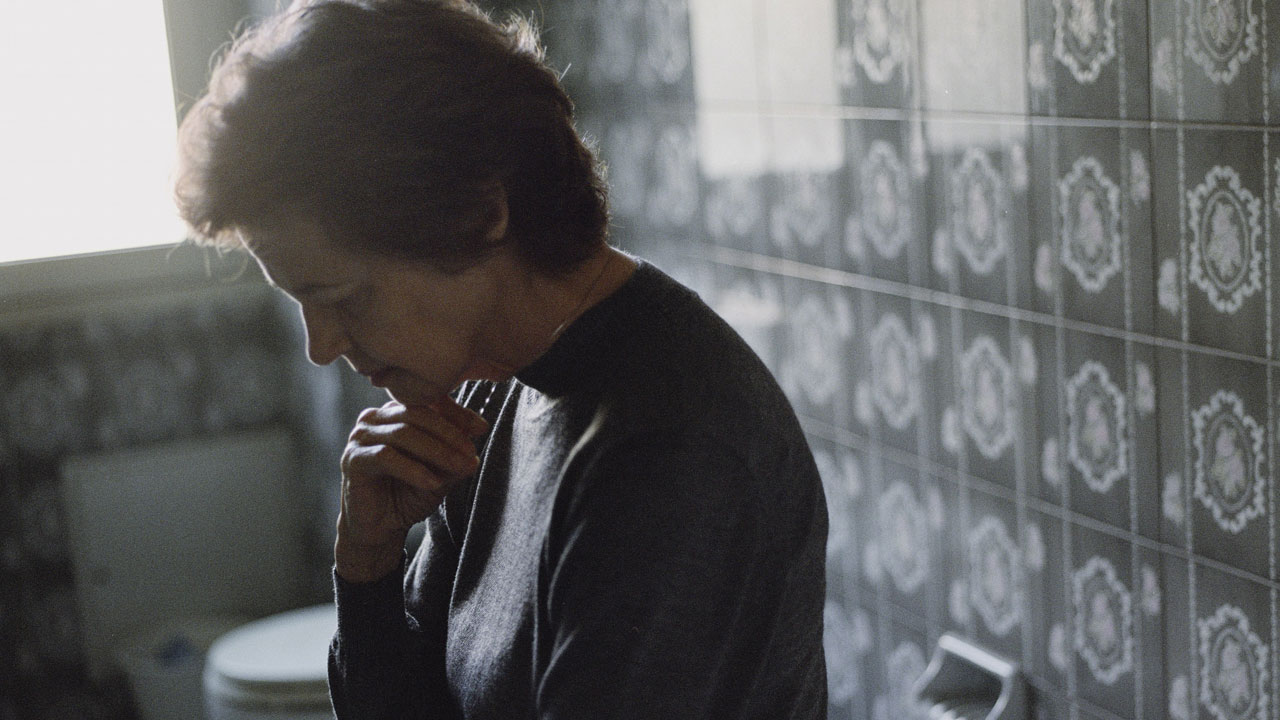Hannah (Andrea Pallaoro, 2017): Italy/France/Belgium
Reviewed by Markus Linecker. Viewed at the AFI Filmfest 2017.
 Hannah is the emotional portrait of an woman’s life after her husband imprisonment. Reflecting imminent insanity, rejection and embarrassment, Hannah, played by Oscar-nominated Charlotte Rampling, tries to distance herself from the pain but cannot escape the past. The crime, which is never fully reveled in the film, haunts her with a mother pounding on her door demanding to talk to her or with an hidden envelope with pictures behind a wardrobe closet. Sadness, guilt and fear is her daily state of being. It seems that everybody is distant from her: even her own son rejects her. The only physical and emotional connection she has is with a blind boy for whose parents she work as a maid. Rampling is very convincing in her performance, mostly emotionless, dismal and even with glimpse of hope there is always the shadow of the past hanging above her.
Hannah is the emotional portrait of an woman’s life after her husband imprisonment. Reflecting imminent insanity, rejection and embarrassment, Hannah, played by Oscar-nominated Charlotte Rampling, tries to distance herself from the pain but cannot escape the past. The crime, which is never fully reveled in the film, haunts her with a mother pounding on her door demanding to talk to her or with an hidden envelope with pictures behind a wardrobe closet. Sadness, guilt and fear is her daily state of being. It seems that everybody is distant from her: even her own son rejects her. The only physical and emotional connection she has is with a blind boy for whose parents she work as a maid. Rampling is very convincing in her performance, mostly emotionless, dismal and even with glimpse of hope there is always the shadow of the past hanging above her.
Director Andrea Pallaoro plays with emotions on different levels,. For example Hannah’s passion is acting: when she goes to acting class it seems that she experiences a bit of joy, but then falls right back into sadness. This is not a bad thing: it forms an understanding in the audience – they can project their own pain into this moment.
With its beautiful photography, Pallaoro establishes a measured pacing with very little camera movement, fascinating angles, and long takes. Set in higher-class Belgium, Hannah does not play with the usual conventions of money and power, but focuses on the results of loss – how does one’s world change as these things disappear? For example, even though she lives in an bourgeois flat in the beginning, after her husband’s imprisonment, she is forced to take on menial work as a maid, which does not fit her upper-middle-class character. Most of the emotion is grounded through lighting changes and settings such as the acting class or the subway, resulting in a clear portrayal of a character suffering through reality’s minutiae.
There are no promises – everything is temporary. One day, a person is on top of the world, and then next she is dealing with the consequences of decisions that cause pain without clear cause. This is the impact of a depression that works itself painfully toward hope, never actually reaching it, such as in Hannah. The viewer is left with the impression that there is more to be experienced by this character, which can be imagined after the fact.
About this entry
You’re currently reading “Hannah (Andrea Pallaoro, 2017): Italy/France/Belgium,” an entry on Student Film Reviews
- Published:
- 11.20.17 / 2pm
- Category:
- AFI Filmfest 2017, Films
1 Comment
Jump to comment form | comments rss [?]